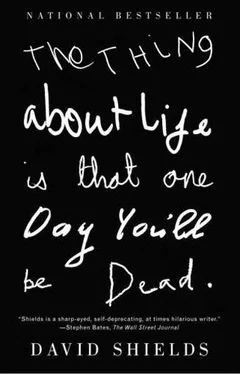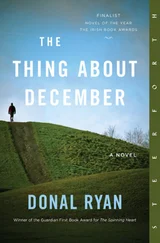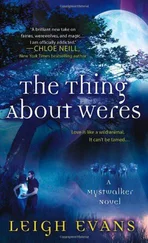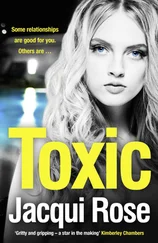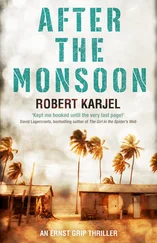Cardiovascular disease kills 40 to 50 percent of people in developed countries. Cancer kills 30 to 40 percent; car accidents kill 2 percent; other kinds of accidents kill another 2 percent. When my father and mother separated and he was mixing antidepressants with alcohol, he drove smack into a garbage truck (accidentally? intentionally? never really explained), totaling his car but leaving him without a scratch—the Energizer bunny. In the United States, heart disease kills 1 in 40 65-to-69-year-olds, 1 in 27 70-to-74-year-olds, 1 in 11 80-to-84-year-olds, and 1 in 7 people 85 years old and over. In 1949, 50 percent of American deaths occurred in the hospital; in 1958, 61 percent; in 1977, 70 percent; now, 80 percent. Septic shock (extremely low blood pressure due to extensive infection in a vital organ) is the leading cause of death in intensive care units in the U.S.: 100,000 to 200,000 deaths a year. Only 36 percent of Americans have living wills. In the U.S., elderly white men commit suicide at a rate five times the national average. One in five doctors receives a request for physician-assisted suicide, and 10 percent of those respond by agreeing to assist.
In the Paleolithic age, half of all babies died before reaching their first birthday; mothers often died giving birth. For most of the last 130,000 years, life expectancy for human beings was 20 years or less. The huge majority of people ever born died early in life from an infectious or parasitic disease. In the second century a.d., the average life span was 25; at least one-third of babies died before reaching their first birthday. Two hundred years ago, the average life span for an American woman was 35; a hundred years ago, it was 48; it’s now 80—the largest, most rapid rise ever.
In 1900, 75 percent of people in the United States died before they reached age 65; now, 70 percent of people die after age 65. From 1900 to 1960, life expectancy for a 65-year-old American increased by 2.4 years; from 1960 to 1990, it increased 3 years. In England in 1815, life expectancy at birth was 39 years. In Europe during the Middle Ages, life expectancy at birth was 33 years, which is approximately the life expectancy now for people in the least developed countries.
Very old age in antiquity would still be very old age now. In the sixth century B.C., Pythagoras lived to be 91. Heraclitus of Ephesus died at 96. The Athenian orator Isocrates died at 98. The average life span has increased since the industrial revolution, but primarily because of declining rates of childhood mortality. In Sweden during the 1860s, the oldest age at death was usually around 106. In the 1990s, it was around 108.
In developed countries, 1 in 10,000 people lives beyond the age of 100. In the U.S., there were 37,000 centenarians in 1990; there are now around 70,000. The majority of American centenarians are female, white, widowed, and institutionalized, were born in the U.S. of Western European ancestry, and have less than a ninth-grade education. Ninety percent of current American centenarians have an annual income of less than $5,000 (excluding food stamps, federal payments to nursing homes, and support from family and friends); they often say they were never able to afford to indulge in bad habits. In many ways, this is true of my father: he grew up relatively poor, our family was always barely making ends meet, and he now lives a spartan life on a fixed income.
On his 100th birthday—five days after which he died—Eubie Blake said, “These docs, they always ask you how you live so long. I tell ’em, ‘If I’d known I was gonna live this long, I’d have taken better care of myself.’”
“Who wants to be a hundred?” asked Henry Miller, who died at 89. (That’s my dad waving wildly in the third row.) “What’s the point of it? A short life and a merry one is far better than a long one sustained by fear, caution, and perpetual medical surveillance.”
Woody Allen, on the other hand, has said, “I don’t want to achieve immortality through my work. I want to achieve immortality through not dying. I don’t want to live on in the hearts of my countrymen. I would rather live on in my apartment.”
Another joke courtesy of Dr. Herring:
A priest, a minister, and a rabbi are discussing what they’d like people to say after they die and their bodies are on display in open caskets.
The priest says, “I’d like someone to say, ‘He was righteous, honest, and generous.’”
The minister says, “I’d like someone to say, ‘He was kind and fair, and he was good to his parishioners.’”
The rabbi says, “I’d want someone to say, ‘Look, he’s moving.’”
Eighty-eight percent of Americans say that religion is important to them; 82 percent of Americans believe that prayer can heal. Ninety-six percent of Americans say they believe in God or some form of universal consciousness; 72 percent believe in angels; 65 percent believe in the devil. In one study of 3,000 American men and women over age 65, people who attended church were half as likely to have strokes as those who never or almost never attended services. In another study, of nearly a thousand American men and women admitted to a coronary care unit, those who received remote, intercessory prayer fared better than those who did not. Those on the receiving end of prayers were less likely to require antibiotics. In a survey of 92,000 American men and women, people who attended church more than once a week were far less likely to get certain diseases than those who attended infrequently. Over a five-year period, the death rate from heart disease was twice as high among those who didn’t go to church very often as it was for those who frequently attended. During a three-year period, infrequent attendees were twice as likely to die of emphysema and four times as likely to die of cirrhosis of the liver as were frequent attendees. In a study of 230 older American men and women who had just had cardiac surgery, people who said they received strength and comfort from practicing their faith were three times more likely to survive than those who didn’t.
When my father was a boy, he studied the Four Kashas—the Four Questions—in Hebrew School and so had no problem reading the Hebrew text and translating it when his father called on him, during Passover Seder, to recite the Four Questions: Why is this night different from all other nights of the year? On all other nights we eat leavened bread or unleavened bread; why on this night do we eat only unleavened bread? On all other nights, we eat bitter herbs and other bitter food; why on this night do we eat only bitter herbs? On all other nights we eat either reclining or straight up in our chairs; why on this night do we eat only reclining? My father, the youngest of four brothers, was the most adept at Hebrew and, as he says, “basked in the sun of my father’s approbation. I, the kosher ham, squeezed every ounce of personal satisfaction out of it.” He had a Bar Mitzvah at the Pennsylvania Avenue Synagogue, where he delivered a brief sermon, expressing gratitude on reaching religious adulthood, but his mother had recently died, at age 49, leaving his father and six children, so the ceremony was more somber than festive. (At her funeral, her casket was pulled through the street on a horse-drawn cart, and my father remembers being deeply embarrassed by his father’s open display of grief—weeping and pounding the casket.)
My father’s father introduced him to Socialism a couple of years later; my father lost God and has been, as he would say, a “devout atheist” the rest of his life. Of late, though, he prefers to call himself an agnostic—“It’s all very mysterious, Dave.” He also can’t say, “When I die…” Instead, he says, “If and when the time might come…” After that, it’s all mumbled, euphemistic evasion.
Читать дальше
